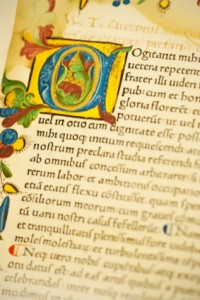 I trust if you’ve been reading this blog for a while, you know I don’t think Republicans or Democrats have cornered the market on Truth. I blogged once on the basis for justice in the kingdom of God as a an example of how humanistic both political parties are. I say this as a preface to what I want to say in this post, so you’ll understand my goal here is not to be an apologist for President Obama.
I trust if you’ve been reading this blog for a while, you know I don’t think Republicans or Democrats have cornered the market on Truth. I blogged once on the basis for justice in the kingdom of God as a an example of how humanistic both political parties are. I say this as a preface to what I want to say in this post, so you’ll understand my goal here is not to be an apologist for President Obama.
Yet, I continue to read with surprise polls showing nearly 30% of white Evangelicals in the United States believe President Obama is a Muslim. As a Christian, whose desire is to see the kingdom of God advance in the earth, I’m concerned so many Christians have embraced this belief.
If you want clarity on the matter, read Stephen Mansfield’s book, The Faith of Barack Obama. I’ve met Stephen Mansfield. I spent an afternoon last summer touring Washington D.C. with him, and I discussed the book with him (which I had previously read). He’s a New York Times best-selling author and a born-again, Bible-believing Christian. If you have any doubts about his motives, I suggest you read his New York Times bestseller, The Faith of George W. Bush.
To put it bluntly, he’s one of us, and his book shows President Obama is clearly not a Muslim. This conclusion is not based on Stephen Mansfield’s opinion but on a reading of the undisputed facts of President Obama’s life. I won’t repeat those facts here because that’s not the purpose of this post. I’m more concerned here with the effect of this widespread misconception because there are two things that can result from it, and both are bad.
First, by continuing to proclaim President Obama is a Muslim in the face of facts clearly showing he is not, Christians lose credibility in the eyes of the world. It’s ok if the world thinks Christians are foolish for believing in Jesus, His crucifixion and resurrection. It’s not ok for them to think we are foolish because we believe the world is flat. It’s not ok because it’s the destiny of Christians to lead the world, and the world will not follow people who don’t know up from down.
Second, continuing to proclaim President Obama is a Muslim can only have the effect of alienating him from the Evangelical world. Do you think President Obama will want to hear anything from Christians who say he is lying about being a Christian?
It’s something to think about. GS




